Toyota Yaris vs Dacia Bigster – Differences & prices compared
Compare performance, boot space, consumption and price in one view.
Find out now: which car is the better choice for you – Toyota Yaris or Dacia Bigster?
The Toyota Yaris (Hatchback) comes with a Full Hybrid or Petrol engine and Automatic or Manuel transmission. In comparison, the Dacia Bigster (SUV) features a Petrol MHEV or Full Hybrid engine with Manuel or Automatic transmission.
When it comes to boot capacity, the Toyota Yaris offers 286 L, while the Dacia Bigster provides 667 L – depending on how much space you need. If you’re looking for more power, decide whether the 280 HP of the Toyota Yaris or the 155 HP of the Dacia Bigster suits your needs better.
In terms of consumption, the values are 3.80 L per 100 km for the Toyota Yaris, and 4.70 L for the Dacia Bigster.
Price-wise, the Toyota Yaris starts at 21900 £, while the Dacia Bigster is available from 20600 £. Compare all the details and find out which model fits your lifestyle best!
Toyota Yaris
The Toyota Yaris exudes a charming blend of practicality and style, making it an appealing choice for urban drivers. Its compact design allows for easy manoeuvrability in crowded city streets, while the interior offers a surprisingly spacious and comfortable environment. With a focus on fuel efficiency and reliability, the Yaris remains a popular option for those seeking a balance between performance and economy.
details @ Toyota
@ Toyota
 @ Toyota
@ Toyota
Dacia Bigster
The Bigster is poised to redefine the SUV segment with its bold design and spacious interior, catering to the needs of both families and adventure seekers alike. Emphasizing sustainability and practicality, this model reflects a modern approach to automotive engineering, making it a compelling choice for environmentally conscious drivers. With its striking presence on the road, the Bigster not only captures attention but also embodies a new era of versatile mobility.
details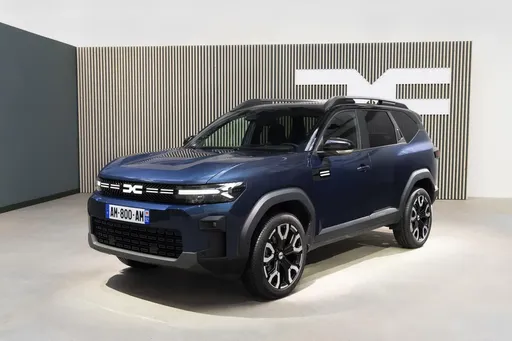 @ media.renault.at
@ media.renault.at
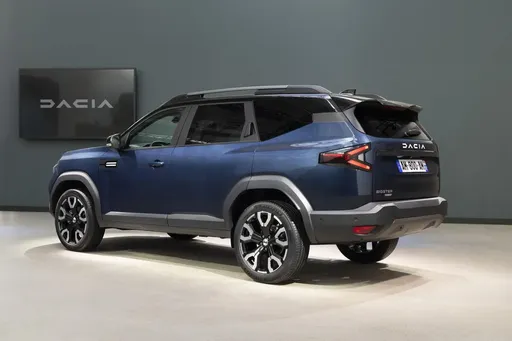 @ media.renault.at
@ media.renault.at
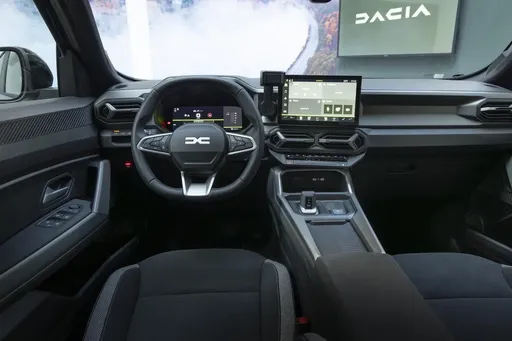 @ media.renault.at
@ media.renault.at
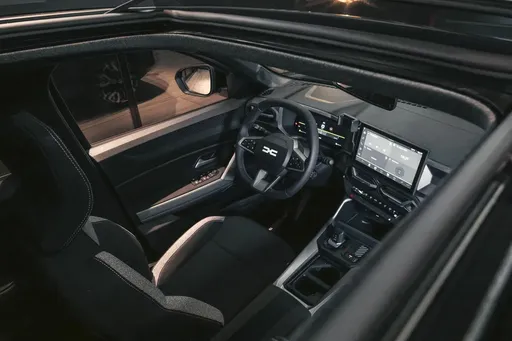 @ media.renault.at
@ media.renault.at
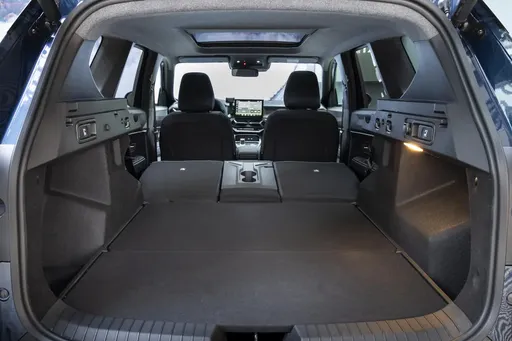 @ media.renault.at
@ media.renault.at

|

|
|
|
|
Costs and Consumption |
|
|---|---|
|
Price
21900 - 45000 £
|
Price
20600 - 26200 £
|
|
Consumption L/100km
3.8 - 9.5 L
|
Consumption L/100km
4.7 - 6.1 L
|
|
Consumption kWh/100km
-
|
Consumption kWh/100km
-
|
|
Electric Range
-
|
Electric Range
-
|
|
Battery Capacity
-
|
Battery Capacity
-
|
|
co2
87 - 215 g/km
|
co2
106 - 137 g/km
|
|
Fuel tank capacity
36 - 50 L
|
Fuel tank capacity
50 - 55 L
|
Dimensions and Body |
|
|---|---|
|
Body Type
Hatchback
|
Body Type
SUV
|
|
Seats
4 - 5
|
Seats
5
|
|
Doors
3 - 5
|
Doors
5
|
|
Curb weight
1090 - 1356 kg
|
Curb weight
1425 - 1503 kg
|
|
Trunk capacity
141 - 286 L
|
Trunk capacity
546 - 667 L
|
|
Length
3940 - 3995 mm
|
Length
4570 mm
|
|
Width
1745 - 1805 mm
|
Width
1813 mm
|
|
Height
1455 - 1500 mm
|
Height
1705 mm
|
|
Payload
289 - 525 kg
|
Payload
446 - 467 kg
|
Engine and Performance |
|
|---|---|
|
Engine Type
Full Hybrid, Petrol
|
Engine Type
Petrol MHEV, Full Hybrid
|
|
Transmission
Automatic, Manuel
|
Transmission
Manuel, Automatic
|
|
Transmission Detail
Manual Gearbox, Automatic Gearbox
|
Transmission Detail
Manual Gearbox, Automated Manual
|
|
Drive Type
Front-Wheel Drive, All-Wheel Drive
|
Drive Type
All-Wheel Drive, Front-Wheel Drive
|
|
Power HP
116 - 280 HP
|
Power HP
130 - 155 HP
|
|
Acceleration 0-100km/h
5.5 - 9.7 s
|
Acceleration 0-100km/h
9.7 - 11.2 s
|
|
Max Speed
175 - 230 km/h
|
Max Speed
180 km/h
|
|
Torque
390 Nm
|
Torque
230 Nm
|
|
Number of Cylinders
3
|
Number of Cylinders
3 - 4
|
|
Power kW
85 - 206 kW
|
Power kW
96 - 115 kW
|
|
Engine capacity
1490 - 1618 cm3
|
Engine capacity
1199 - 1799 cm3
|
General |
|
|---|---|
|
Model Year
2024 - 2025
|
Model Year
2025
|
|
CO2 Efficiency Class
B, G
|
CO2 Efficiency Class
E, D, C
|
|
Brand
Toyota
|
Brand
Dacia
|
Toyota Yaris
Introducing the Next-Gen Toyota Yaris: A Blend of Innovation and Technology
The Toyota Yaris has long been lauded for its efficiency, reliability, and practicality. As we venture into the 2024 model year, Toyota has upped the ante with the latest versions of this popular hatchback, melding cutting-edge technology with eco-conscious design. Here’s an in-depth look at what makes the current Yaris line-up stand out from the crowd.
Efficient Powertrains: Hybrid and Beyond
Spearheading the technological innovation in the Yaris range is the introduction of various hybrid models. The Yaris offers a 1.5-litre full-hybrid engine, marrying a petrol engine with an electric motor to produce between 116 and 130 PS. This power blend is controlled via a sophisticated CVT-gearbox, optimizing both performance and fuel efficiency, with consumption figures ranging from an impressive 3.8 to 4.2 litres per 100 km.
For those seeking pure performance, the GR Yaris variants provide a turbocharged 1.6-litre engine capable of producing 280 PS. This power is delivered via a choice of manual or automatic transmission, giving drivers the tactile involvement or convenience they desire.
Design that Fulfils and Inspires
The Yaris hasn't forgotten its roots as a compact, city-friendly hatchback, measuring between 3,940 and 3,995 mm in length. With its bold front grille, sleek lines, and a choice of striking colours, it's a car that turns heads while remaining perfectly suited for urban environments.
The interior is equally impressive, designed with a focus on driver convenience and comfort. Depending on the variant, Yaris can offer generous cargo space of up to 286 litres, making it a perfect companion for everyday tasks or weekend escapes.
Technological Integration: The Smart Choice
Toyota's approach goes beyond just improving engine technology; the Yaris is packed with innovative features aimed at enhancing the driving experience. It boasts a suite of advanced safety systems such as lane departure alert, pre-collision system, and adaptive cruise control, ensuring peace of mind on the road.
The infotainment system in the Yaris is designed to keep you connected, offering seamless smartphone integration, a user-friendly interface, and an intuitive navigation system, ensuring that you're always informed and entertained.
The Cost of Innovation
Owning a Yaris is not just about impressive technology; it's also about making economic sense. With a price range between €25,500 and €49,990, and monthly costs spanning from €748 to €1,513, it offers a broad spectrum to suit different budget needs.
Concerned about emissions? You can rest easy knowing that the Yaris boasts a CO2 efficiency class ranging from B to G, thanks to its low emissions output of between 87 to 215 g/km.
Conclusion: The Toyota Yaris Drives the Future
The Toyota Yaris continues to be a strong contender in the compact car segment, pushing boundaries with its innovative full-hybrid systems and performance-oriented GR models. It's a remarkable blend of design, technology, and economy, ensuring it remains a top choice for drivers who demand more from their hatchbacks.
Whether you're seeking the efficiency of a hybrid or the thrill of the GR Yaris, there's a model tailored to your unique driving needs in Toyota's latest Yaris lineup.
Dacia Bigster
Introducing the Dacia Bigster: A Game Changer in the SUV Market
The Dacia Bigster is poised to redefine the landscape of compact SUVs with its striking design, innovative technologies, and a variety of powertrains that cater to a broad range of consumers. As the automotive world continues to shift towards sustainability without compromising performance, the Bigster stands out with its thoughtful engineering and modern features.
Striking Design and Practicality
From the moment you lay eyes on the Bigster, you can see that it was designed with purpose. Its robust silhouette, bold front fascia, and wide stance convey a sense of strength and stability. With dimensions of 4570 mm in length, 1813 mm in width, and standing 1705 mm tall, the Bigster offers a spacious cabin that comfortably accommodates five passengers. Coupled with a trunk capacity ranging from 546 to 667 liters, this SUV is as practical as it is stylish, making it perfect for both city driving and outdoor adventures.
Powerful and Efficient Engines
The Dacia Bigster offers a range of engine options designed to meet diverse consumer needs. The line-up includes two petrol MHEV variants: the TCe 130 and TCe 140, both available in front-wheel drive and all-wheel drive configurations. These engines not only deliver robust performance, with outputs between 130 and 140 HP, but also prioritize fuel efficiency, achieving consumption figures as low as 5.5 liters per 100 kilometers.
For those seeking an eco-friendlier option, the Bigster also features a Full Hybrid variant, the Hybrid 155, which offers an impressive 155 HP with a fuel efficiency rating of just 4.7 L/100 km. Additionally, the ECO-G 140 LPG variant allows for even more cost-effective driving without sacrificing power, catering especially to environmentally conscious consumers.
Innovative Technology Enhancements
The Dacia Bigster is equipped with an array of advanced technological features aimed at enhancing the driving experience. Its comprehensive infotainment system integrates a user-friendly interface with smartphone connectivity, ensuring that drivers can stay connected while on the road. Safety has also been prioritized, with features such as advanced driver assistance systems designed to keep both the driver and passengers secure.
Performance Meets Efficiency
Performance is a central theme in the Bigster's engineering. The SUV boasts a range of acceleration times, with the TCe 130 reaching 0-100 km/h in approximately 11.2 seconds and the TCe 140 doing so in a swift 9.8 seconds. The Hybrid model enhances this performance even further, offering a 0-100 km/h time of just 9.7 seconds. With a maximum speed of 180 km/h, the Bigster is not only capable but also thrilling to drive.
Comfort and Versatility
Inside, the Dacia Bigster emphasizes comfort and versatility with a roomy cabin that features high-quality materials and modern finishes. The SUV is designed with adjustable seating configurations and ample legroom, making it ideal for both daily commutes and longer journeys. It's also worth mentioning that the vehicle's curb weights range from 1425 kg to 1503 kg, optimized for performance and efficiency.
Conclusion: The Future of Driving with Dacia Bigster
The Dacia Bigster is more than just a new SUV; it represents a significant step forward in blending efficiency, performance, and practicality in an ever-evolving automotive landscape. With various engine options, advanced features, and a commitment to sustainability, it is clear that the Bigster is designed to meet the demands of modern drivers while appealing to a wide audience. Whether you are looking for a reliable city cruiser or a capable outdoor companion, the Dacia Bigster is set to deliver on all fronts.
The prices and data displayed are estimates based on German list prices and may vary by country. This information is not legally binding.
